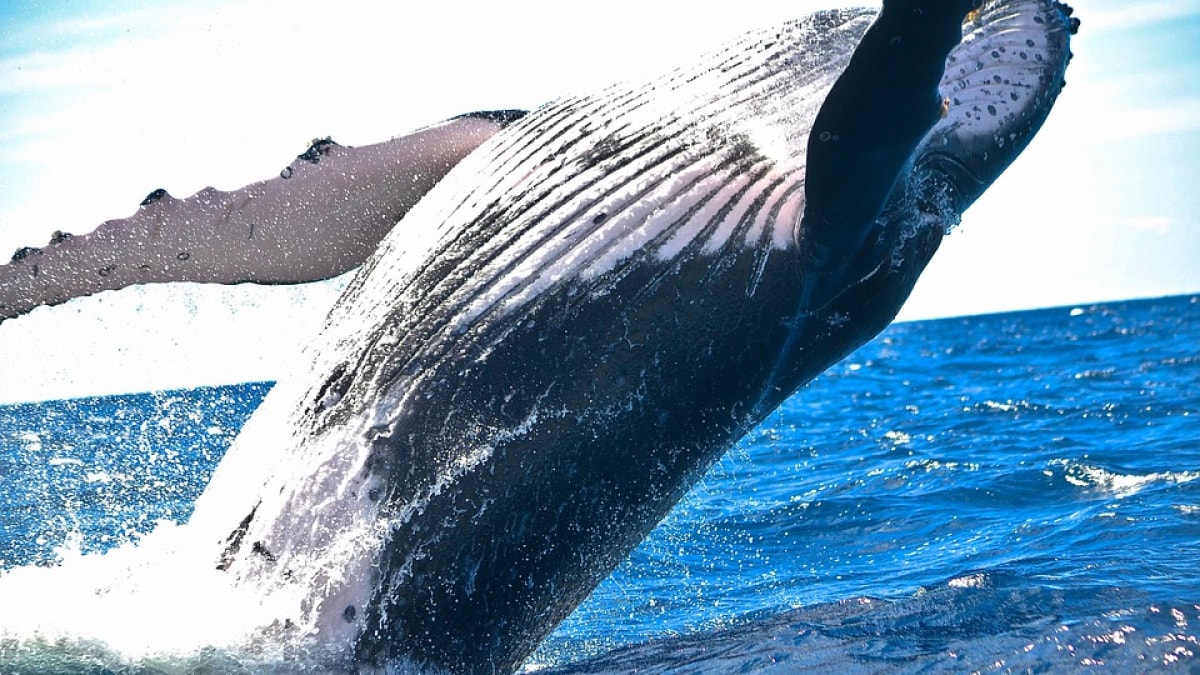

A humpback whale has undertaken an extraordinary migration spanning over 8,000 miles and three oceans, breaking records for the longest documented journey between breeding grounds. This exceptional voyage, reported in Royal Society Open Science, is believed to be influenced by changing oceanic conditions or evolving mating strategies, as suggested by researchers. According to Professor Darren Croft, a behavioural ecologist at the University of Exeter and Executive Director of the Centre for Whale Research, these migrations could be driven by climate change altering food availability or competition for mates leading to the exploration of new areas. Croft shared his insights with NBC News, describing the research as a significant discovery highlighting the extensive distances covered by humpback whales.
The whale was initially photographed off Colombia’s Pacific coast in 2013 and observed again in the same region in 2017, as per sources. By 2022, it was identified near Zanzibar in the Indian Ocean, a remarkable leap from its prior locations. As stated by Croft to NBC News, this migration covered a distance comparable to swimming from London to Tokyo and back.
The findings, supported by photographic evidence from the citizen science platform HappyWhale.com, confirm that humpback whales can switch breeding grounds. Ryan Reisinger, Associate Professor at the University of Southampton and the report’s handling editor, expressed enthusiasm about the study, in a statement, emphasising the importance of the photographic data in understanding whale movements.
Humpback whales typically migrate between cooler feeding grounds in summer and warmer breeding areas in winter. As per reports, these findings raise questions about whether advanced technology is merely improving tracking capabilities or if environmental changes caused by climate change are influencing migratory behaviours. Reisinger, speaking to NBC News, noted that more data is needed to understand these patterns fully.
Marine species, including whales, are being forced to adapt as ocean conditions shift. The use of AI and satellite imaging in tracking whale movements provides researchers with valuable data for analysing these changes.
For the latest tech news and reviews, follow Gadgets 360 on X, Facebook, WhatsApp, Threads and Google News. For the latest videos on gadgets and tech, subscribe to our YouTube channel. If you want to know everything about top influencers, follow our in-house Who’sThat360 on Instagram and YouTube.
Kolkata Knight Riders (KKR) haven't found the same groove this season that saw…
We must’ve missed the memo when automakers decided bigger is always better when it comes…
Proteins play a central role in virtually every disease. They are the building blocks of…
OpenAI has announced new capabilities for its ChatGPT Search feature. The San Francisco-based AI firm…
Morning News wrap: India slams Pak at UN over Pahalgam attack, Liberals to form minority…
A day after former Pakistan captain Shahid Afridi made unsavoury comments about the…